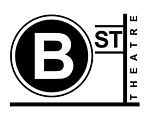North Sacramento is a well-established community that is part of the city of Sacramento, California. It was a city from its incorporation in 1924 until it was merged (in a bitter election decided by 6 votes) in 1964 into the City of Sacramento. Incorporation was led by the North Sacramento Chamber of Commerce, incorporated the year before, in 1923.
North Sacramento, when still a city, was distinctive for being the only incorporated city immediately adjacent to Sacramento. Sacramento did not border any other city until the incorporation of West Sacramento in 1987. The primary ZIP code for North Sacramento is 95815.
At the time of its 1964 merger with Sacramento, the boundaries of North Sacramento consisted of the American River on the south, property lines and the Natomas East Drainage Canal (now Steelhead Creek) on the west, Main Avenue on the north, and the Sacramento Northern Railroad (now a bike trail) on the east until its junction with Lampasas Avenue, continuing east and south on Evergreen Street, east on El Camino Avenue (with variations), and southeast on the Southern Pacific (now Union Pacific) railroad line to its crossing of the American River. All of these boundaries were also the boundaries of the surrounding city of Sacramento, except for the communities of Hagginwood and Ben Ali, which were not yet annexed to either city. The merger election with Sacramento was a bitter contest that took two elections and only passed by 6 votes. The NO campaign signs showcased a large fish swallowing a small fish.
The North Sacramento School District, which served a majority of the city, became part of Twin Rivers Unified School District in 2007 merger. The area also has numerous community and civic organizations with the old city name (the North Sacramento Chamber of Commerce was founded in 1923). The retail life of the community relied substantially upon the road traffic of Rio Linda Boulevard and El Camino Avenue (which carried U.S. Route 40 in the pre-freeway days) during its heyday as a separate city. North Sacramento is also the home of Sacramento's central U.S. Postal Service facility. Iceland Skating Rink, a local icon, burned to the ground in an arson fire in spring of 2010. The North Sacramento Freeway was completed in the late 1950s, originally carrying U.S. 40 and renumbered in 1964 as Highway 160 (the portion west of Arden Way). This area is also known as Old North Sacramento.
A significant issue, in the debate over the merger of the City of North Sacramento with the City of Sacramento, was the sale of fresh meat after 6 pm. At the time, there were laws that forbade the sale of fresh meat after 6 pm. In North Sacramento, no such restrictions existed. Women, working in the downtown area of Sacramento and required to work past the time that would allow them to go to Sacramento markets in time to buy meat for their families on the way home in the City of Sacramento, would drive in to North Sacramento to buy fresh meat for the dinner table. This particular bone of contention was not resolved until the City of Sacramento relented, and allowed the sale of meat after 6 pm in North Sacramento, and eventually in Sacramento in general. The result was the absorption of the City of North Sacramento into the City of Sacramento. That final alteration in the law removed a substantial economic basis for shopping in North Sacramento, thus the beginning of its long decline.
After the merger of North Sacramento with the City of Sacramento and 1960s freeway construction that bypassed business districts on Marysville, Rio Linda, and Del Paso Boulevards, North Sacramento began a gradual decline. The tax base lessened and local representation in city government has historically been lacking. For the next forty-five years, city funding would be provided to maintain popular old neighborhoods in the downtown and mid-town areas and to build infrastructure in emerging new communities, while North Sacramento was relegated to a position of forgotten status. Also, because of the diverse population and large area covered, North Sacramento has suffered from an identity crisis. Recently, awareness and community action have increased and the new motto of the community is "North Sac is Back"!




